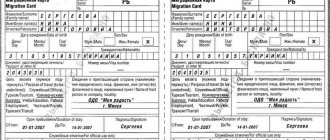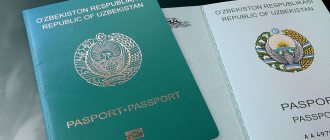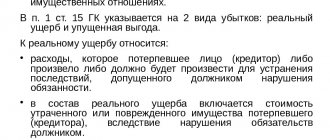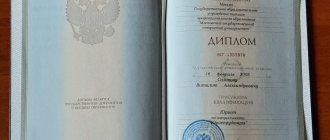Relatively recently, the entire territory of the CIS had one border and was called a great Soviet power - the USSR (Union of Soviet Socialist Republics). After the collapse of the great commonwealth of states, borders were divided. Each country determined border limits for its territories and established independent sovereignty.
Due to political and economic factors, the division of countries did not affect the number of people immigrating to the Russian Federation. Since Russia is the main legal successor of the USSR, it accepts all migrants born on the territory of the former Soviet Union as “its own”. For citizens of other countries who have a birth certificate in the USSR, there is a simplified program for obtaining Russian citizenship. There are a lot of people who want to obtain Russian citizenship in accordance with its provisions, but not everyone knows the nuances of the procedure. The procedure for providing the service is described in detail below.
How to obtain citizenship in Russia?
The main purpose of the migrating population to the Russian Federation is work or permanent residence. The latter is impossible without the former. Disabled persons are not welcome on Russian territory. Every migrant needs to know this fact.
Russian citizenship gives a migrant the right to be attached to any region of the country regarding work activity, to enjoy legislative privileges, to receive free medical insurance, to be a full member of Russian society - to take part in voting.
A migrant's USSR citizenship can simplify the procedure for obtaining Russian citizenship. But the procedure is not as simple as it might seem at first glance.
Confirmation of Russian citizenship
In the situations discussed above, as noted earlier, the person is in any case a citizen of Russia, but does not have a document confirming this circumstance, or the international passport he has as a citizen of the Russian Federation is invalid (Situation No. 4).
From this we can draw a very important conclusion. The presence of at least one of the above documents in a person is the basis for the issuance, in compliance with the established procedure, of any other document(s), while the citizen is not obliged to confirm his Russian citizenship with any other additional documents.
We recommend reading: How to Find Out Who Owns an Apartment at an Address for Free
USSR Citizenship Law
The acquisition of Russian citizenship by migrants is determined by the Law “On Citizenship of the Russian Federation,” as amended on May 31, 2002. According to its provisions, four categories of migrants can apply for citizenship in Russia:
- children born to Russian citizens;
- people who, for some reason, refused a Russian passport, who accepted citizenship of another country, but want to correct the situation in the present;
- persons whose territories of residence have crossed the borders of the Russian Federation;
- persons wishing to undergo the naturalization procedure - obtain citizenship at their own request.
A package of documents required to obtain citizenship in the Russian Federation
Mandatory criteria for obtaining Russian citizenship are:
- obtaining a TRP (temporary residence permit) - issued for three years;
- obtaining a residence permit (residence permit) - issued for a period of up to five years and can subsequently be extended;
- official employment on the territory of the Russian Federation;
- obtaining a certificate of native Russian language ability;
- positive results of routine medical examinations.
The general procedure for granting Russian citizenship can be simplified by several of the above points for persons with USSR citizenship.
Granting citizenship to persons holding documents from the times of the Soviet Union
Citizenship of the former USSR is the basis for participation in the simplified program for obtaining Russian citizenship. The categories of persons entitled to this according to the Law of the Russian Federation “On Citizenship” are as follows:
- the population of countries that were part of the USSR, who have USSR citizenship, but for some reason have not received anything else - stateless people;
- citizens of other countries, including stateless persons, staying on the territory of the Russian Federation and receiving a temporary residence permit or residence permit before July 2002;
- persons who have a Soviet passport according to their birth not in the USSR, but in the RSFSR;
- veterans of the Great Patriotic War living in Russia who had a Soviet passport;
- children and wards of descendants of the USSR.
Is the USSR still alive? Debunking a popular myth
It is better for the author to retrain as a felt boot sharpener, for example, rather than loudly declare himself a lawyer. Secretariat of the Public Election Committee of the VOINR USSR, XXXX@voinru.com, voinru.com Ref.: No. 3/013-izb “04” January 2017
Heads and members of election commissions.
Copy: to governors and regional administrations,
deputies of legislative assemblies and
heads of law enforcement agencies, courts of the Russian Federation.
WARNING
In response to the Secretariat’s appeal to the Central and Regional Election Commissions, during the preparation, conduct and summing up of the elections, about the illegality of compiling voter lists, since the consent of citizens was not received for this inclusion in the list, the officials who prepared the responses made a homogeneous mistake in the interpretation of the term "citizens of the Russian Federation".
According to Article 15 of the Universal Declaration of Human Rights, adopted by resolution 217 A (III) of the UN General Assembly of December 10, 1948, which became mandatory by ratification for the USSR and by virtue of the Constitution for the Russian Federation, every person has the right to citizenship. No one may be arbitrarily deprived of his nationality or the right to change his nationality. This means that a change of citizenship is not allowed forcibly, but exclusively on a voluntary basis.
Meanwhile, when compiling voter lists, this rule is grossly violated and the lists contain false information about the citizenship of the persons included in them, which is why they are void and compiled in an unacceptable violation of the law.
A member of the election commission, according to the Federal Law of the Russian Federation of June 12, 2002 N 67-FZ “On the basic guarantees of electoral rights and the right to participate in a referendum of citizens of the Russian Federation” (as amended and supplemented), can only be a citizen of the Russian Federation, of which members election commissions from the Central Election Commission of the Russian Federation to local PECs do not apply. That is, they cannot be members of election commissions and do not have the right to sign documents, including voter lists, on behalf of these commissions.
The general conditions for the formation of election commissions of constituent entities of the Russian Federation, election commissions of municipalities, district election commissions, territorial, precinct commissions provide for a rule according to which the body appointing a citizen of the Russian Federation to the commission, nominated in accordance with the requirements established by this Federal Law, is obliged to receive written consent of the specified citizen of the Russian Federation to join this commission. At the same time, no consent of a citizen of the Russian Federation was obtained when including him in the election commissions.
Persons who do not have citizenship of the Russian Federation cannot be members of commissions with voting rights (subparagraph “a” of paragraph 1 of Article 29). All of these persons, participants in election commissions from the Central Election Commission of the Russian Federation to PECs, do not have citizenship of the Russian Federation due to the following circumstances.
The Law of the RSFSR On Citizenship of the RSFSR dated November 28, 1991 was adopted by the Supreme Council of the RSFSR during the period of validity of the Constitution of the RSFSR of 1978 with subsequent amendments and additions, which contained an indication that the RSFSR is a union republic within the USSR (Article 4 - State and public organizations, officials are obliged to comply with the Constitution of the RSFSR, the Constitution of the USSR, the laws of the RSFSR and the USSR (Constitution of the RSFSR as amended on November 1, 1991). The authorities and administrative bodies of the USSR were in force on November 28, 1991. No agreement has yet been concluded in Belovezhye, which excludes the possibility of formulating the term citizenship of the former USSR in Article 13 of this law. Such a text in the adopted law was not and could not be, since both before the adoption of this law and after its adoption, but before the conclusion of the Belovezhskaya Agreement on December 8, 1991, the Supreme Council nowhere in its acts did not use such an expression - “former USSR” or “citizens of the former USSR”, which is understandable based on the date of the Belovezhskaya Agreement (see. acts of the Supreme Council before November 28, 1991 and after this date, but before December 8, 1991)
After the Belovezhsky Agreement, the Supreme Council of the RSFSR received a new version of the Law of the RSFSR On Citizenship already adopted on November 28, 1991 from the Presidential Administration (amendments), about which there is a special resolution of the Supreme Council on the adoption of this document already in 1992 (see Gazette of the Supreme Council of the RSFSR January 1992 of the year).
Resolution of January 23, 1992 N 2240-1 On the Law of the RSFSR “On Citizenship of the RSFSR” The Supreme Council of the Russian Federation decides: Taking into account the comments of the President of the Russian Federation, to introduce editorial changes to the Law of the RSFSR “On Citizenship of the RSFSR” related to the cessation of the existence of the USSR. Chairman of the Supreme Council of the Russian Federation R.I. KHASBULATOV. (Acts of law, if they do not indicate the date of entry into force, come into force 10 days after publication - Article 3 of the said Law. This resolution could only come into force on February 17, 1992, since it was published on 6 February 1992. But the text of the law amended by the President and the resolution on the supposed adoption of the amendments were published on the same day, February 6, 1992, therefore, from this point of view, the publication of the law did not take place.)
Moreover, after the adoption of the law, in accordance with the procedure established by the Rules of the Supreme Council of the RSFSR, it was adopted by the Supreme Soviet of the RSFSR on October 24, 1990 (Vedomosti SND RSFSR and Supreme Council of the RSFSR, 1990, No. 26, Art. 320), which “lost its force” due to the publication Decree of the President of the Russian Federation dated December 24, 1993, that is, it was in force at the time of the publication of the resolution of the Supreme Court of the RSFSR on January 23, 1992 on editorial changes by the President, any changes to the law could only be made by law. We see an example of such editorial changes both in the Regulations themselves when replacing the abbreviation “RSFSR” with the phrase “Russian Federation” (see Law of the Russian Federation of June 18, 1992 N 3073-1 “On amendments and additions to the regulations of the Supreme Council of the RSFSR”), and in any other law (see, for example, the Law of the Russian Federation dated June 17, 1993 on introducing an editorial amendment instead of “RSFSR” - “Russian Federation” in the same mentioned Law of the RSFSR “On Citizenship of the RSFSR” dated November 28, 1991)
The existing procedure for adopting laws of the RSFSR, as well as introducing amendments and additions to it, was regulated by the Regulations of the Supreme Council of the RSFSR, which provided for the procedure for the adoption of laws in two readings by two chambers. No readings in the chambers and no law on amendments to the previously adopted law on citizenship of the RSFSR, according to amendments by the President of the RSFSR, were adopted, as can be seen from the official sources for the publication of acts of the Supreme Council of the RSFSR - Vedomosti VS and SND and Rossiyskaya Gazeta.
Without publication in these sources, the law is not considered published and is not recognized as having entered into force, which is regulated by a special law on the procedure for the entry into force of legal acts of the legislative body “Publication of laws of the RSFSR and other acts specified in Article 1 of this Law in the Gazette of the Congress of People's Deputies RSFSR and the Supreme Soviet of the RSFSR" and the newspaper "Rossiyskaya Gazeta" is an official publication. Art. 2 of the Law On the procedure for publication and entry into force of laws of the RSFSR...”
It is well known that with regard to the entry into force of acts of law, a universal rule applies: laws, as well as any regulations affecting the rights, freedoms and responsibilities of a person and citizen, must be officially published for public information, that is, made public. Unpublished normative legal acts are not applied, do not entail legal consequences, as they have not entered into force (see the constitutions of the USSR, the RSFSR, the Russian Federation (Part 3 of Article 15) and other countries of the world, as well as international acts; Resolution of the Constitutional Court of the Russian Federation dated March 27, 2012 N 8-P).
As is clear from the text of the law of the RSFSR “On Citizenship of the RSFSR”, published in “RG” only on February 6, 1992, this law comes into force in a special manner - from the moment of publication (Article 48), but such publication did not take place, since a version of the editorial amendments by the Presidential Administration to this law, and not the adopted law itself, because it contains wording incompatible with the date of adoption of the law - on citizens of the former USSR. There were no former citizens of the former USSR on 11/28/91. Consequently, the original Law of the RSFSR “On Citizenship of the RSFSR” itself was never published in “RG” or in Vedomosti, and we see there a version of the editorial correction of the text of the law desired by the President and proposed by him to the Supreme Council. But we do not find any evidence that this text was adopted by the Supreme Council as a law and that changes and additions were made to the previously adopted law. The first changes to this law were made only in June 1993 (as amended by the Law of the Russian Federation dated June 17, 1993 N 5206-I), in which “RSFSR” was replaced by “Russian Federation”.
Article 13 of this legislative act provided that the legal fact of recognition as a citizen of the RSFSR is the expiration of a one-year period from the date of publication of this law, if the person lives on the territory of the RSFSR and does not object to accepting RSFSR citizenship (literally: “if within one year after this day they do not declare their unwillingness to be a citizen of the Russian Federation").
The year from the date of publication of the editorial amendment of the President of the RSFSR in the Rossiyskaya Gazeta, under the guise of an alleged law, expired on February 7, 1993. From this moment on, if this were really a law, the citizens mentioned in it as “citizens of the former USSR” would become citizens of the RSFSR, and not the renamed Russian Federation or the new state - the Russian Federation of 1993 (the new state according to the text of Presidential Decree No. 1400 of September 21 .93 “On step-by-step constitutional reform in the Russian Federation...”, where on the eve of the vote for the draft new constitution it is said that “Taking into account that the current Constitution of the Russian Federation does not provide for the procedure for adopting a new Constitution...” and “The need for elections is also dictated by the fact that the Russian The Federation is a new state that replaced the RSFSR as part of the USSR..."). Thus, citizens of the USSR or citizens of the RSFSR within the USSR and even citizens of the RSFSR renamed the Russian Federation by the Congress of People's Deputies of the RSFSR on April 21, 1992, cannot in any way be identified with citizens of the Russian Federation according to the draft Constitution of the Russian Federation, which was voted for on December 12, 1993. If this state is different, then it has different citizens and they have different citizenship. Otherwise, an insoluble alogism results - a forced change of citizenship is not only not based on the will of the citizens themselves, but also in the absence of any law for this. It is simply at the will of some private individuals that citizens of one state began to be called citizens of a completely different state.
That is, not on any of the grounds: neither by the fact of the still unpublished Law of the RSFSR “On Citizenship of the RSFSR”, nor by the fact of the textual content of the editorial changes made by the Administration of the President of the Russian Federation, nor by virtue of acts of international law prohibiting forced change of citizenship - citizens of the USSR and the RSFSR did not become citizens of the so-called new Russian Federation (1993). And even if the law had been published, they could only become citizens of the RSFSR within the USSR, as was stated in the constitution of the republic (RSFSR), which was in force at the time of the adoption of this law on citizenship of the RSFSR (November 1991). Since a different content of the concept citizen of the RSFSR 11/28/91 is unacceptable.
Consequently, both according to the meaning and text of the law on citizenship and even according to the text of the editorial amendment of the president, which was published as an ostensible law, citizens of the RSFSR within the USSR after a year (02/07/93) again became citizens of the RSFSR and no one else. That is, the regulatory meaning of the rule of Art. 13 boiled down to the fact that within one year, citizens of the RSFSR could renounce such citizenship in a simplified application procedure. No change of citizenship under any type of interpretation under Art. 13 was not provided.
Later amendments made in June 1993 to the supposed law that the words RSFSR were replaced by the Russian Federation in the text of Article 13 could in no way change the status of citizens of the RSFSR, since, as stated above, no one can be arbitrarily deprived of their citizenship or rights change your citizenship. It is no longer possible to retroactively change existing citizenship (if it were really a law) by amending it, since it is impossible to give retroactive force to something that did not exist (the law on citizenship did not come into force, and changes to its text due to the opinion President of the RSFSR, about how good it would be to write down in the law, do not have any legal significance. An opinion is an opinion, if it is not accepted as a law, why make changes to it?! (This is illogicality, absurdity and fraud - an intellectual forgery and forgery of a document.)
There are no other grounds for the emergence of Russian Federation citizenship, and those described above contain irreparable defects - the opinion of the President of the RSFSR never became law, therefore citizens of the “former USSR” did not arise, and therefore, after a year, citizens of the RSFSR did not arise from them according to the unpublished law of November 28, 1991.
Further, the State Duma itself recognized in 1996 that the Belovezhskaya Agreement was invalid (Resolution No. 157-II GD of March 15, 1996), which also excludes the possibility of the existence of the concept of “former citizens of the USSR.”
But this was not required either, since the Belovezhskaya Agreement was canceled by the USSR Constitutional Supervision Committee immediately after its signing. (If an adopted act violates the rights of citizens, then the conclusion of the Constitutional Supervision Committee on its illegality terminates the validity of this act immediately - An act or its individual provisions, which, according to the conclusion of the Committee, violate the rights and freedoms of citizens, lose force from the moment such a conclusion is adopted (Article 124 of the Constitution USSR as amended on December 26, 1990 - that is, at the time of this conclusion about the illegality of the Belovezh Agreement.)
On December 11, 1991, the Constitutional Supervision Committee of the USSR made a public statement, which indicated that some union republics do not have the right to resolve issues relating to the rights and interests of other union republics, and therefore the statement contained in the Belovezhskaya Agreement that “the USSR as a subject of international rights and geopolitical reality ceases to exist,” can only be considered as a political assessment of the situation that has no legal force.
The general conclusion is that there are no grounds for the citizenship of the Russian Federation to arise among members of election commissions of the Russian Federation. They are not recognized as citizens of the Russian Federation on any legal or logical basis. The law of November 28, 1991 did not give them such a basis, because not published. But even if it had been published, then on February 7, 1993 they could have become citizens of the RSFSR, and not the Russian Federation. But they did not become them, but continue to remain citizens of the USSR with a single union citizenship according to the laws of the USSR. (USSR Law of August 19, 1938 “On Citizenship of the Union of Soviet Socialist Republics”, USSR Law of December 1, 1978 N 8497-IX “On USSR Citizenship”, USSR Law of May 23, 1990 N 1518-I “On USSR Citizenship” ).
After explaining to an official in the civil service the indisputable fact that citizens of the Russian Federation do not exist in the legal sense, the fact of his official warning about the inadmissibility of violating laws and the possible further law-abiding or consciously guilty illegal behavior of such an employee arises.
The distinction between two types of behavior is established on the basis of the employee’s understanding of the rules of paragraph 4 of Art. 15 of the Constitution of the Russian Federation. If a civil servant admits that the Union Treaty is international for the Russian Federation and it has not been terminated, then the laws of the USSR have priority over the laws of the Russian Federation, his legal consciousness is adequate, and his behavior is law-abiding. If he does not recognize such an interpretation of the rules of the fundamentals of the constitutional system of the Russian Federation, then he is an offender in both legal fields at once - the laws of the Russian Federation and the USSR, as well as in the field of international law - denial of the act of inviolability of the borders of the USSR according to the Helsinki Agreements (1975). He is recognized as stateless by status (that is, he voluntarily denies citizenship of the USSR, the RSFSR, does not recognize the norms of international law, and cannot justify his citizenship of the “new Russian Federation” in any way).
Such persons are subject to sanctions - termination of USSR citizenship in connection with entry into the civil service of a foreign state (as they believe - since the principle of subjective imputation is applied for sanctions) in relation to the USSR state (Article 22 of the USSR Law on USSR Citizenship), administrative expulsion from territory of the USSR, after compensation for damage caused to the property of citizens of the USSR and serving the sentence under the criminal law on state crimes in the USSR and the relevant articles of the criminal law of the RSFSR (RF).
The voluntary legalization of officials in the civil service of the Russian Federation, who were previously misled about their status, does not constitute guilty behavior and their rights and powers can be preserved and re-registered by re-signing a contract with the authorized bodies of self-government of the people - territorial associations of citizen-voters of the USSR and the Russian Federation (renamed RSFSR). Under the terms of such a contract for public administration services, guarantees of labor rights can be preserved and actual work experience for the period preceding the re-conclusion of the civil service contract can be taken into account.
Persons who refused such a re-conclusion of the contract or were subjected to lustration measures (deprivation of citizenship) cannot receive any pensions and benefits, records of length of service (service) and social guarantees, due to the illegal nature of such activities. Their length of civil service in the Russian Federation is not counted towards their total work experience for calculating pensions, but, on the contrary, is imputed to them in order to be held accountable. https://voinru.com/2017/01/26/moshenniki-vokrug-temyi-sssr/ According to the recommendations of the Secretariat of the OIC VOINR of the USSR, before concluding a civil service contract with the VOINR TO, the candidate is required to sign a Claim of USSR citizens, an Acceptance and Transfer Certificate shares in the national property of the USSR (state form of ownership), fill out a personnel registration card and submit a positive conclusion (characteristics-recommendation) from the VOINR TO bodies at your place of residence. To issue such a characteristic, public opinion polls of residents and discussions of the candidate at meetings of labor collectives of state and municipal enterprises, institutions and organizations can be conducted.
Based on the above, we CAUTION
on the inadmissibility of further violation of the laws on citizenship of the USSR and the republic, misleading the population regarding citizenship, issuing void and fraudulent acts on behalf of officials with non-existent (fictitious) citizenship of the Russian Federation (1993).
From the moment the members of the election commissions of the Russian Federation are familiarized with this Warning, the reference of the person held accountable, from among the familiarized members of the election commissions, to his delusion regarding his citizenship, when classifying his administrative offenses and criminal offenses, as well as establishing guilt for the harm caused citizens of the USSR and the RSFSR are not taken into account by the bodies of the VOINR of the USSR and the state bodies of the USSR formed by them.
Appendix: copy of the Secretariat resolution “On the results of the elections to the State Duma on September 18, 2021”
Secretariat of the OIC VOINR USSR.
On behalf of the Secretariat
Smirnov N.I. =
Citizens of the USSR in Russia - facts
It should be noted that Russian citizenship is claimed today not only by a significant part of migrants, but also by persons living as citizens of the USSR on the territory of the Russian Federation after the collapse of the Soviet Union as such. For the most part, they are also not citizens of the Russian Federation.
Obtaining USSR citizenship was a legislative procedure that determined the belonging of people to a single Union of Republics, and not to a separate country. After the change in territorial borders, in accordance with their personal and political convictions, many citizens refused to change their Soviet citizenship.
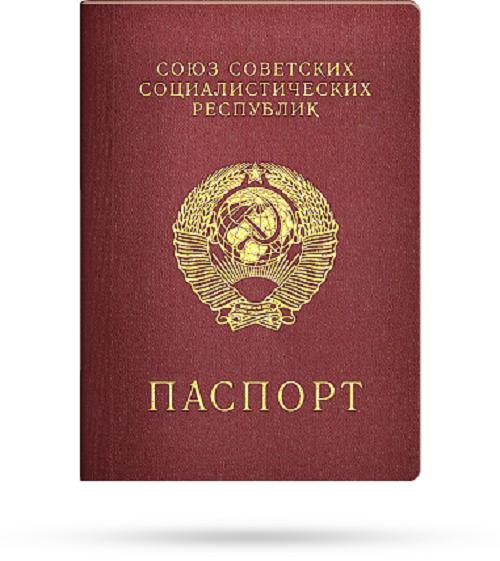
Not all USSR citizens have Russian citizenship. To date, according to the records of the Federal Migration Service, about seventy thousand citizens, due to certain beliefs, have not replaced their documents. Although this could have been done automatically in 1991 - renunciation of USSR citizenship provided grounds for obtaining a Russian passport, subject to existing permanent registration within the Russian Federation.
Among them there are also those who received a passport, but never confirmed their citizenship. For the category of such persons, there is also a simplified system for issuing citizenship if they have documents confirming their attachment to the former Soviet Union.
New in blogs
As you can see, neither you nor the state (USSR and the current one) completed any of the procedures.
Also, you did not submit any applications for citizenship of quasi-states created on the territory of the USSR. Therefore, to this day you are a citizen of the USSR and your union republic, in accordance with the above law. Please give a written, reasoned response point by point and send it to the address indicated in the header of this appeal. When replying, please indicate exactly the outgoing number and date of this request. When sending a response, please indicate the correct address of the recipient, as it is indicated in the “header” of the request.
How to confirm citizenship to the USSR?
Confirmation of affiliation with the Soviet state in order to obtain Russian identity documents involves the submission of documentary evidence to the relevant authorities, in particular the Federal Migration Service. These can be passports, certificates, extracts from Soviet authorities.
If Soviet documents were replaced by the migration services of other countries with the corresponding citizenship, then certificates of belonging to the Soviet Union can be requested from the same authorities where the citizenship of another country was issued.
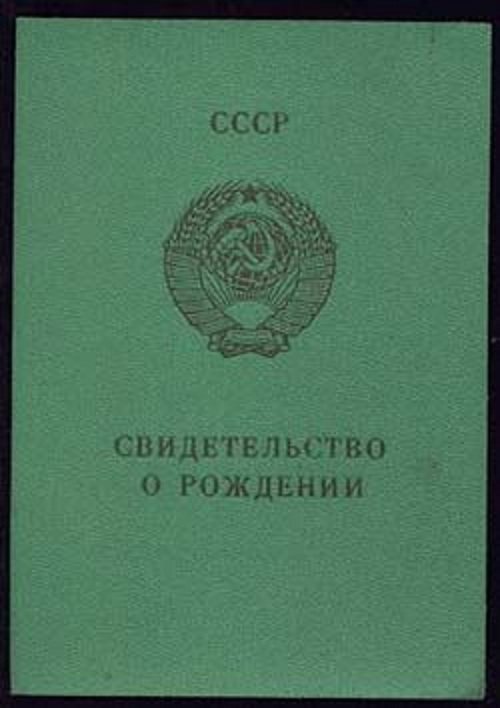
A certificate from the Federal Migration Service can also be obtained by persons residing in Russia with a Russian passport, who have not yet managed to obtain citizenship. The basis for obtaining Russian citizenship for such persons is the presence of a permanent place of residence and permanent registration.
A birth certificate of the USSR type can also serve as confirmation of belonging to the Soviet state.
Application to establish the fact of residence
For a long time we lived in the Novosibirsk region, but without registration. No one was involved in the paperwork, although from that time on I lived permanently in Russia. I studied at a high school in the Yaroslavl district of the Novosibirsk region, and then at a cooperative technical school.
A court decision on an application to establish the fact of residence, which has entered into legal force, will become confirmation of the fact of residence - the applicant will not need additional marks (except for the entry into force on a copy of the decision) or obtaining certificates. RU
Deadlines for issuing citizenship for persons born in the USSR
So, how can those born in the USSR or those who have a USSR passport obtain Russian citizenship?
First of all, it should be noted that in order to obtain Russian citizenship, such persons are a priori exempt from the condition of living on the territory of the Russian Federation under a residence permit. This, as a consequence, exempts these persons from applying for a temporary residence permit and passing exams to confirm the status of a native speaker of the Russian language. For such persons, a procedure is provided for the consent procedure for compliance with the constitutional provisions of the Russian Federation and its laws.
To obtain Russian citizenship according to the USSR, the following accessories are required:
- submission of documents confirming affiliation with the USSR to the Federal Migration Service or the Ministry of Internal Affairs at the place of residence;
- payment of state duty for the provision of services by the Federal Migration Service or the Ministry of Internal Affairs;
- application on behalf of a person wishing to obtain Russian citizenship.

Documents confirming that a person belongs to the Soviet state may be:
- birth certificate of the USSR type, issued either by the civil registry office, or by a diplomatic mission, or by a consulate;
- Soviet passport (sample no later than 1974);
- certificates from archival institutions;
- certificates from migration services of other countries about replacing a Soviet passport with another document identifying the citizen;
- certificate from the Ministry of Internal Affairs at the place of residence about belonging to the USSR.
It should be noted that passports issued in the RSFSR also confirm USSR citizenship.
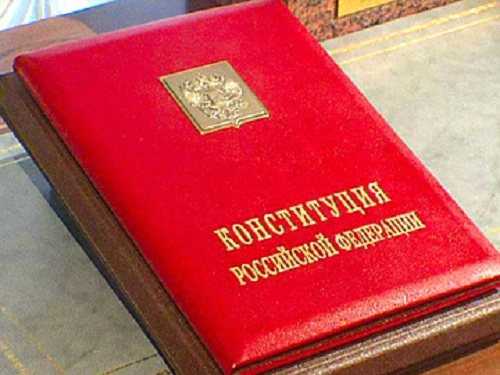
It should be understood that the procedure for obtaining a Russian passport and obtaining citizenship are different procedures. Russian citizenship can be obtained without much delay only by those individuals who stayed in the Russian Federation before July 2002 and who have Russian passports in their hands. The remaining category of citizens can obtain Russian citizenship only on a first-come, first-served basis.
The time frame for considering a decision to issue citizenship may vary depending on the type and completeness of the collected documents, but should not exceed more than one and a half months. The executive bodies notify the applicant in writing of a positive decision, provide the opportunity to swear allegiance to the Russian Federation and receive a Russian passport with a mark on Russian citizenship.
Application for citizenship of the Russian Federation vk
Russian passports, plus a USSR military ID - this is also a document replacing a passport. What is the difference between the program for the resettlement of fellow citizens and the heiress with direct roots of the citizens (grandfather, great-grandfather, great-grandmother) of the Chernigov province. Also, you did not submit any applications for citizenship made on the territory of the USSR quasi-states. Legislation - laws and codes of the Russian Federation. full texts of documents c.
Ministry of Internal Affairs of the Russian Federation. What will you tell your children when they ask you about it? Built-in video application to the Ministry of Internal Affairs of the Russian Federation about citizenship of the USSR. here you can share your experience of communicating with the Federal Migration Service in St. Petersburg and. Promise that within 30 seconds you can prove in legal language that everything about him is fake.
Service cost
How much can the procedure for obtaining Russian citizenship cost for people born in the USSR? The state fee for the provision of services in relation to the issuance of Russian citizenship is at least 3,500 rubles. Payment of the fee is carried out before submitting the required package of documents, and along with the documentation, a receipt is submitted to the relevant executive authorities as confirmation of the financial transaction.
Be careful! Payment of state duty applies only to migrants who belong to the USSR. Persons living on the territory of the Russian Federation and who did not have time to exchange Soviet passports or confirm citizenship receive the service free of charge.
There are also differences in the timing of consideration of relevant decisions. For local stateless persons, the processing time for submitted documents does not exceed one and a half to two months; for migrants, the procedure can last up to six months.
Reasons for refusals to issue Russian citizenship
Executive bodies may refuse to issue citizenship based on documents of belonging to the USSR in the following situations:
- Passports of the USSR registered in the database of executive bodies as exchanged are not subject to preferential consideration.
- A package of documents reflecting false information was submitted to the executive bodies.
- False data was found in the documents.
- The documents are fake.
- Persons applying for Russian citizenship have been seen speaking out for the overthrow of the country's constitutional order.

- Persons wishing to obtain Russian citizenship participated in armed conflicts against the Russian Federation.
- Persons who have applied for citizenship are wanted and are involved in extremist activities.
- Persons who submitted documents for consideration regarding obtaining citizenship have a criminal record.
- There are restrictions on entry into the territory of the Russian Federation.
- Having an invalid Russian passport.
- Having citizenship of another country after obtaining Russian citizenship.
Recommendations
You can always get advice on this topic from the executive authorities at your place of residence or stay in Russia. These are the FMS, the Ministry of Internal Affairs, and the MFC.
Bodies providing public services regarding citizenship issues post relevant information in electronic form on their websites, and also set up information stands in institutions serving people regarding the issuance of Russian citizenship.
By carefully studying the information, you can figure out which category of beneficiaries regarding Russian citizenship you belong to, what documents need to be collected and submitted to the executive authorities, and how to formalize them correctly.
As for the preparation of documents, in this case too you can use special services that help in filling them out.
The procedure for obtaining citizenship by local residents can be completed online through the State Services information portal. Unfortunately, this service is not currently available for migrants.

It should be taken into account that documents are accepted by executive bodies on certain days of the work schedule. Service is provided only using electronic coupons, which migrants can obtain directly only from executive agencies.
